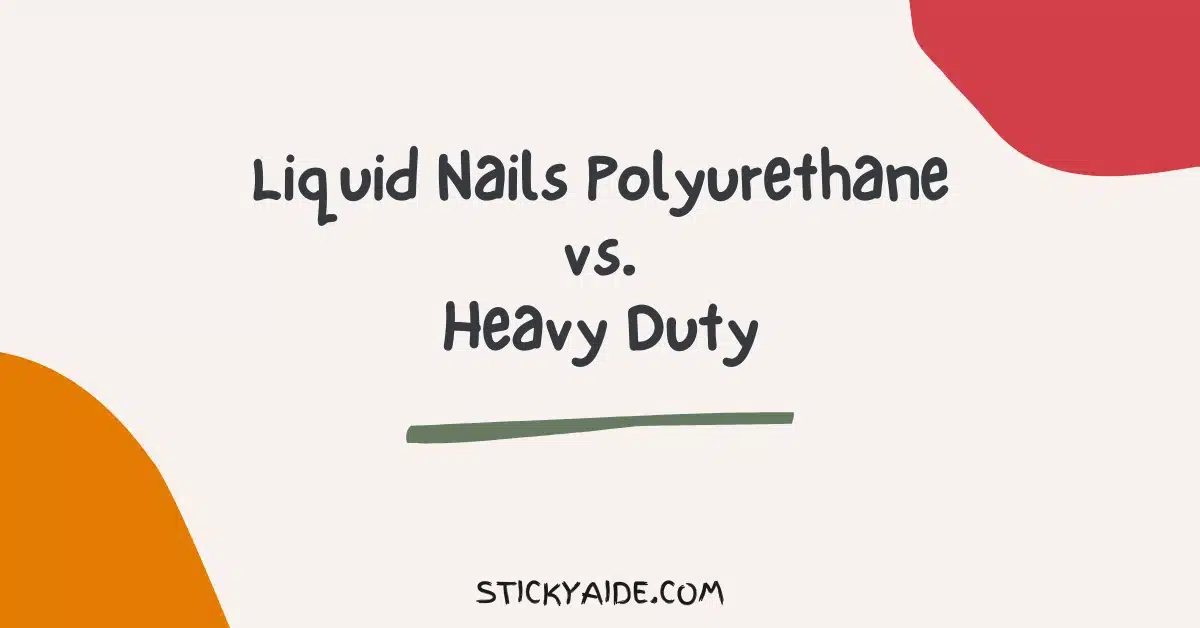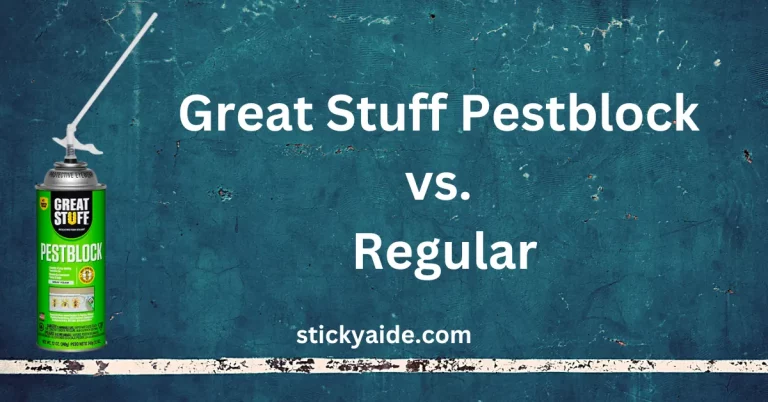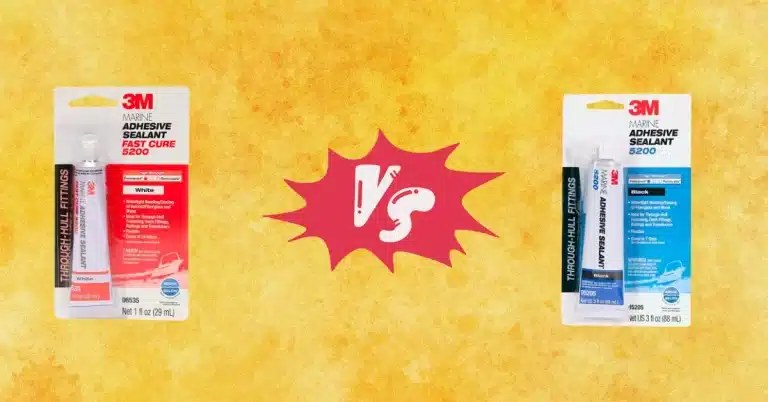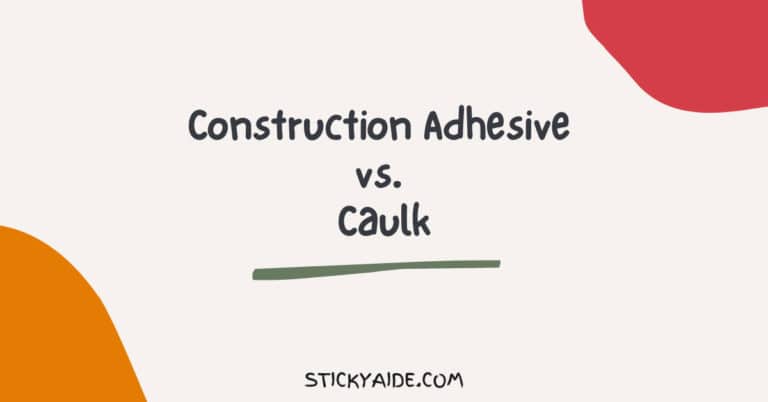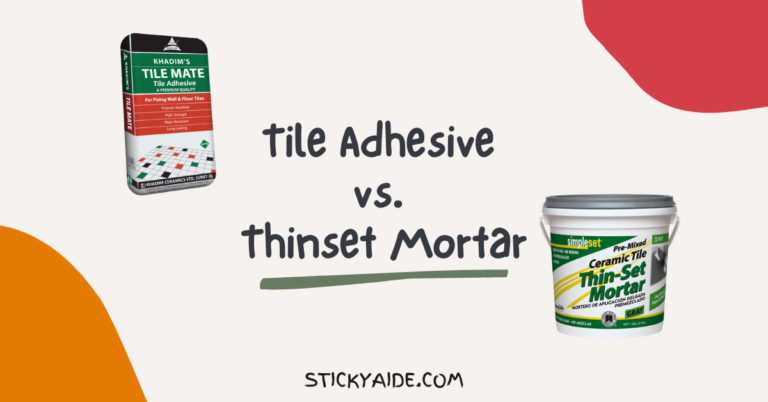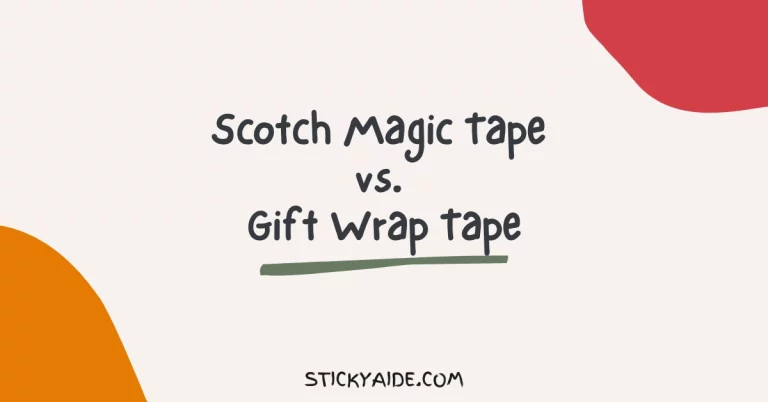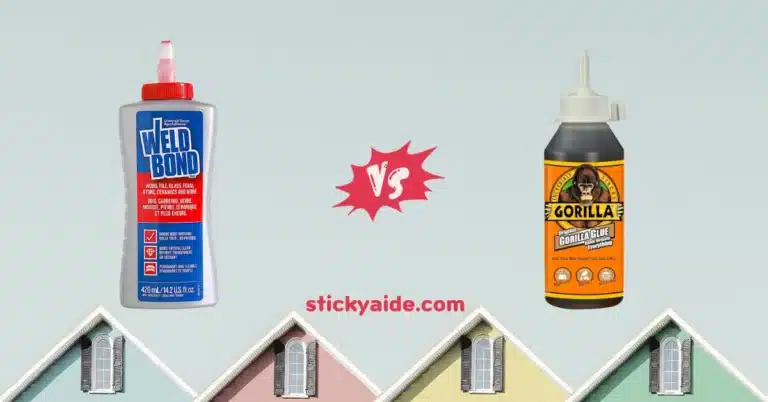Whether you are working on DIY projects at home or are an expert on professional projects, adhesives have cosmopolitan usage. They not only bring furniture to life, but adhesives can also fix your baby’s toys.
But with so many available options, how do you know which is appropriate for your project? While some adhesive works wonderfully on small-scale projects, you will need heavy-duty adhesives to ensure long-lasting joints.
To help you distinguish, here is a detailed comparison of Liquid Nails Polyurethane vs. Heavy Duty. Continue reading to better understand which type of adhesive to use and when.
Read More: Liquid Nails Subfloor vs. Heavy Duty
What is Liquid Nails Polyurethane?
Speaking of durable adhesives, the Liquid Nails Polyurethane is one of the strongest adhesives for any kind of project. It is weather-resistant and perfect for conventional use.
The glue bonds with a wide range of materials, including wood, ceramic, glass, plastic, and any non-porous surface. It takes 8 to 10 hours to dry completely.
Another amazing feature of Liquid Nails Polyurethane is that it stays put in different temperatures. You can use it for any indoor project and for outdoor projects as well.
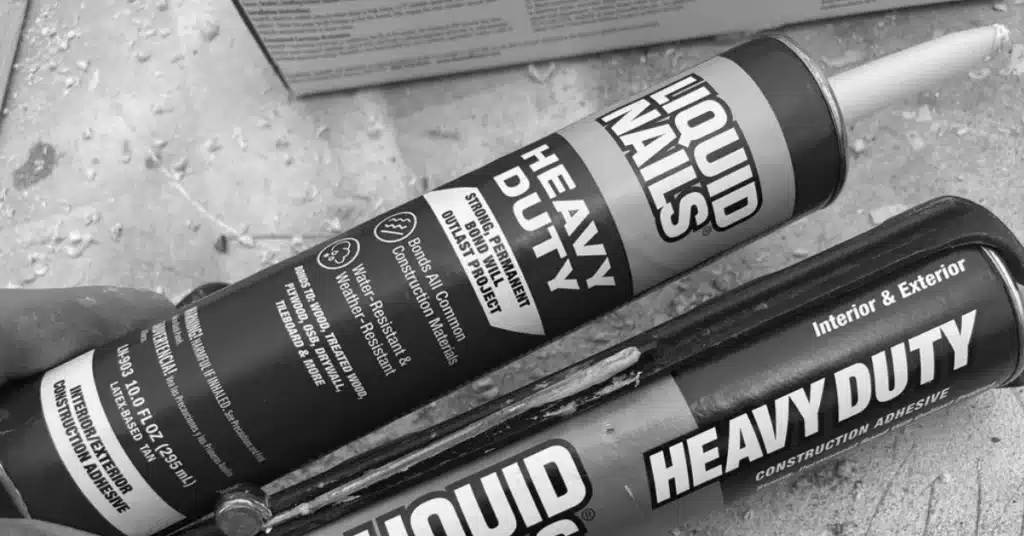
What is Liquid Nails Heavy Duty?
The Liquid Nails Heavy Duty is an escalated version of polyurethane. It is a construction adhesive which has an exceptional holding power. It is not only weather-resistant but water-resistant as well.
Bonds made with Liquid Nails Heavy Duty adhesives can withstand up to 150.7 pounds of pressure. Not only that, the glue is usable on heavy materials as well.
Heavy-duty glue creates permanent bonds and can be used for indoor or outdoor projects. You can use it on the garden, bathroom, balcony, or living room furniture. It takes about 24 hours to dry completely before you can use your items.
Liquid Nails Polyurethane vs. Heavy Duty
It must be obvious by now that Polyurethane and Heavy Duty are from the same brand: Liquid Nails. However, both these adhesives have some key differences.
Although both are excellent at work, they are made to work differently and may not perform as well as they would if used properly. Getting confused? Don’t worry; here are all their features compiled in a table.
| Feature | Liquid Nails Polyurethane | Liquid Nails Heavy-Duty |
| Strength | Tough and durable | Exceptional holding power, permanent bond |
| Materials To Use In | Ideal for non-porous materials and surfaces, good for conventional use | Used in heavy materials, construction work, etc. |
| Drying Time | 8 to 10 hours | 24 to 72 hours |
| Common Applications | Construction, DIY | Heavy-duty construction work, landscaping |
| Price | Cost-effective, good for household projects. | More expensive due to high bondage power and heavy-duty projects. |
| Availability | Widely available in retail stores | Only available in construction and hardware stores |
Read More: Liquid Nails vs. Gorilla Glue
When to Use Liquid Nails Polyurethane?
Liquid Nails Polyurethane is a versatile adhesive with various uses. You can use it in woodworking projects, e.g., furniture assembly and crafting. Other uses of polyurethane are interior applications where there is limited to no moisture.
Polyurethane can also be used in DIY projects, school assignments, indoor flooring projects, etc. The adhesive can also successfully bond dissimilar materials like plastic to glass and metal to wood, to name a few.
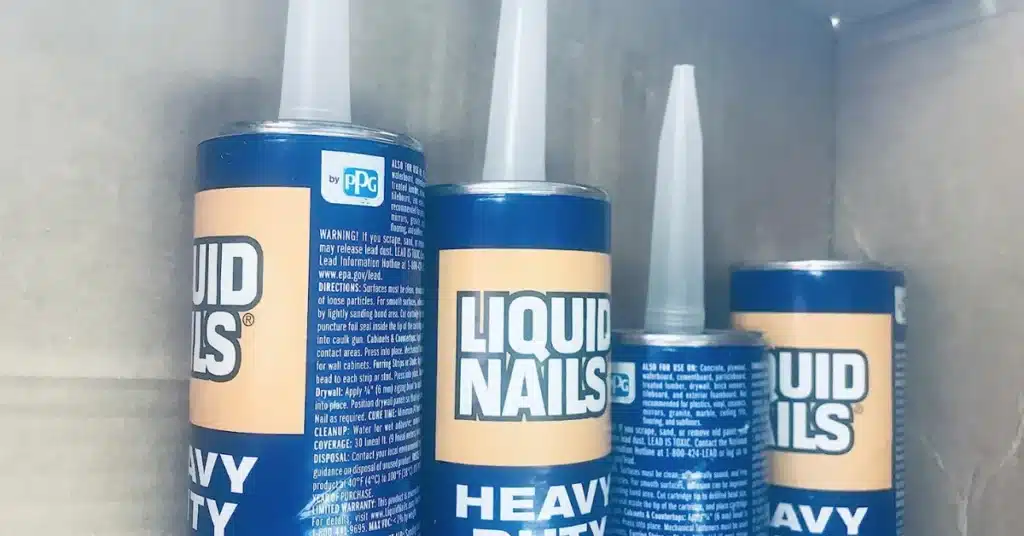
When to Use Liquid Nails Heavy Duty?
Liquid Nails Heavy Duty is for all the robust installments needed in a construction site. It can also bond load-bearing applications and ensure stability in the structure. Heavy Duty also provides reliable joints between heavy materials like stone, brick, metal, etc.
It is excellent for outdoor projects. Even if the material comes in direct contact with continuous moisture or extreme weather conditions, the Liquid Nails Heavy Duty can withstand it all. The adhesive can be used in vertical projects as well.
Last Opinion
I hope my Liquid Nails Polyurethane vs. Heavy Duty comparison has given you a clear idea of these two excellent adhesives. If you are confused about which one to choose, get the one that best fits your needs.
Get Polyurethane if you have small-scale projects to work on or use it on surfaces where it will not come in direct contact with extreme conditions. However, for durable bonds and large-scale projects, blindly go for Heavy Duty.

